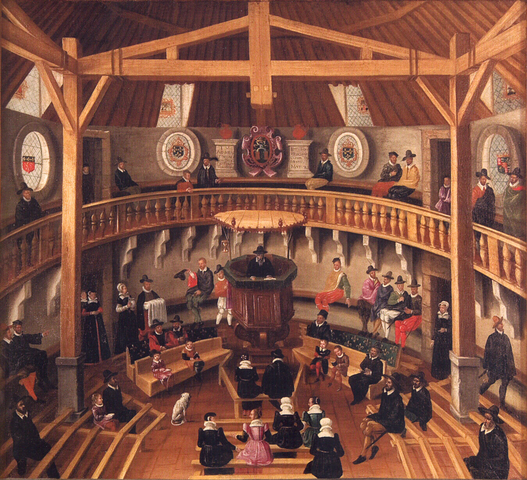There are many arguments we can derive from Scripture in favor of the practice of baptizing children.
This is the eighth day of Christmas, the day of Christ’s circumcision. We could look at circumcision as a precursor to baptism. If the sign of the righteousness that comes by faith could be applied to children in the old covenant, why not the new?
There were many old covenant washings — called “baptisms" in the book of Hebrews — that included children. We could look at how those many baptisms are filled in the one rite of Christian baptism. The book of Leviticus gives us a rich and deep theology of baptism. We see this play out in the corporate history of Israel in Ezekiel 16. It’s true that circumcision applied only to sons in Israel, but Jewish boys and girls both received ritual baptisms at birth in the old covenant.
We could look at the household baptisms, especially in the book of Acts. The household principle is still in effect in the new covenant. If infants were suddenly excluded with the inauguration of the new covenant, after being included for thousands of years, surely there would be at least of trace of debate and controversy over this point in the pages of the NT.
We could look baptismal events in the old covenant that were multi-generational, such as the flood/Noah’s ark and Israel’s Red Sea crossing. These types of baptism show how appropriately it is applied to the children of believers today.
We could look at the covenant promises. C is what we call a “covenant child.” She is a child of the promise. God said to Abraham, “I will be a God to you and to your children.” God has said to these parents, “I will be a God to you and your children.” Infant baptism is the corollary of the covenant promises. It’s the application of the covenant promise.
But here’s yet another way to think about what that covenant promise means and why paedobaptism is so important: Look at baptism through the lens of the slogan ”grace restores nature.” Grace restores nature — this is the clear teaching of Scripture. Christ came to redeem and restore God’s fallen creation, to put creation back on track after sin derailed it.
Grace restores nature — this means God’s design for nature, for creation, for creational structures like the family will be restored in Christ. Sin ruptured God’s design for the family — grace restores the family. Sin wrecked God’s design for family life; by grace that design is restored for believers. Infant baptism is a sign that grace restores nature. It is a sign that grace restores the fallenness of the family.
The children of Adam were put under a curse in Genesis 3. All those descending from Adam inherit his guilt and corruption. We call this original sin.
But Scripture says the children of believers are holy. They belong to the kingdom of God. They have the promises. They have faith. They have the Spirit. All that to say: God’s covenant promise counteracts original sin. Infant baptism is God’s gracious answer to original sin. Yes, children born to believers are sinful from the moment of conception. But they are also embraced by God’s gracious promise from the moment of conception. God’s claim on those children comes to fruition in their baptisms.
Think of it this way: If Adam and his wife had NOT fallen into sin, when would their children have become members of God’s family? When would would their children have become believers, in a relationship with God? When would their children have become holy? When would their children have been granted access, in principle, to the Tree of Life? Obviously all of these things would have happened in infancy. Grace restores God’s original program for Adam’s children. Grace restores even infancy. Infant baptism is a sign that God’s grace is truly comprehensive. Infant baptism is a sign that Christ really did come to make his blessings flow as far as the curse is found. If the curse touches infancy — which it does — then the covenant blessing of the gospel must extend to infancy as well. If grace does not reach infancy, then there is a segment of humanity beyond the redemption of Christ, a segment of humanity that belong irrevocably to Satan. That cannot be. All this to say: Infant baptism reveals the true breadth and scope of the gospel. Infant baptism is proof grace restores nature. Infant baptism is a sign of the gospel.

